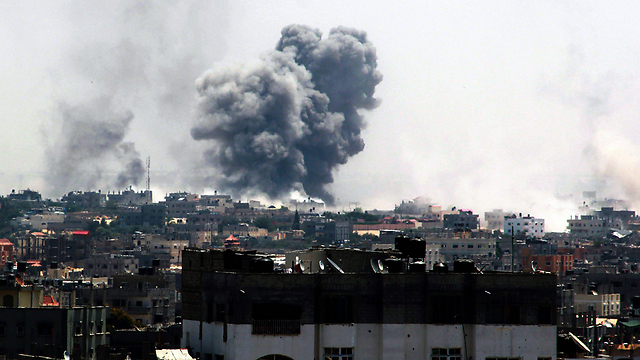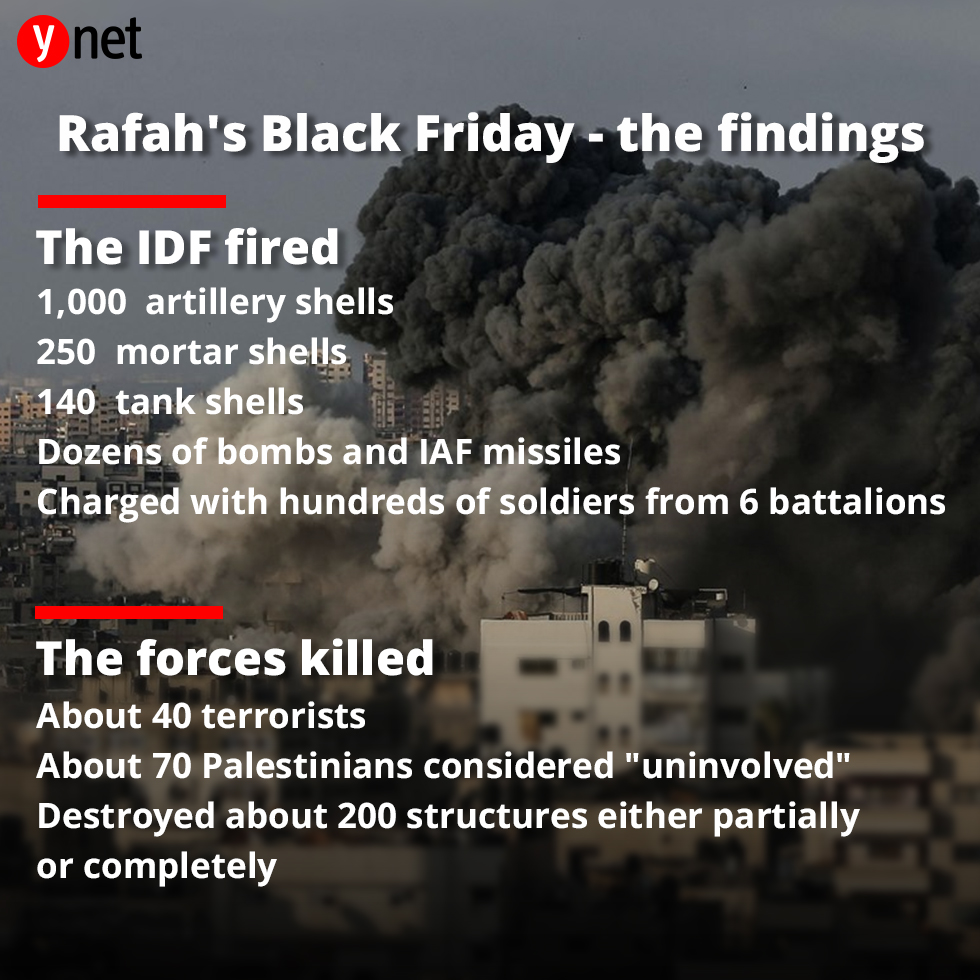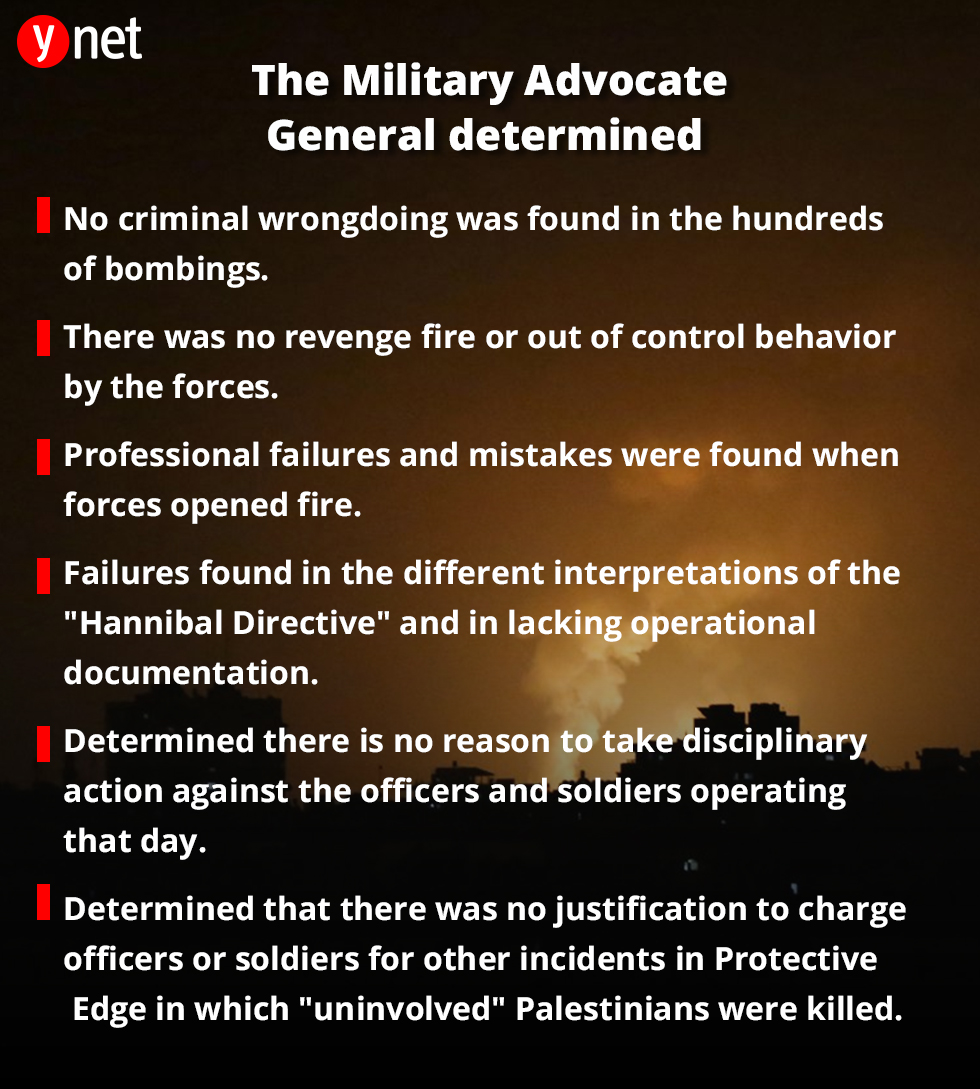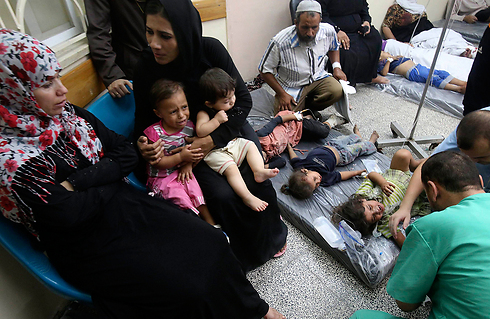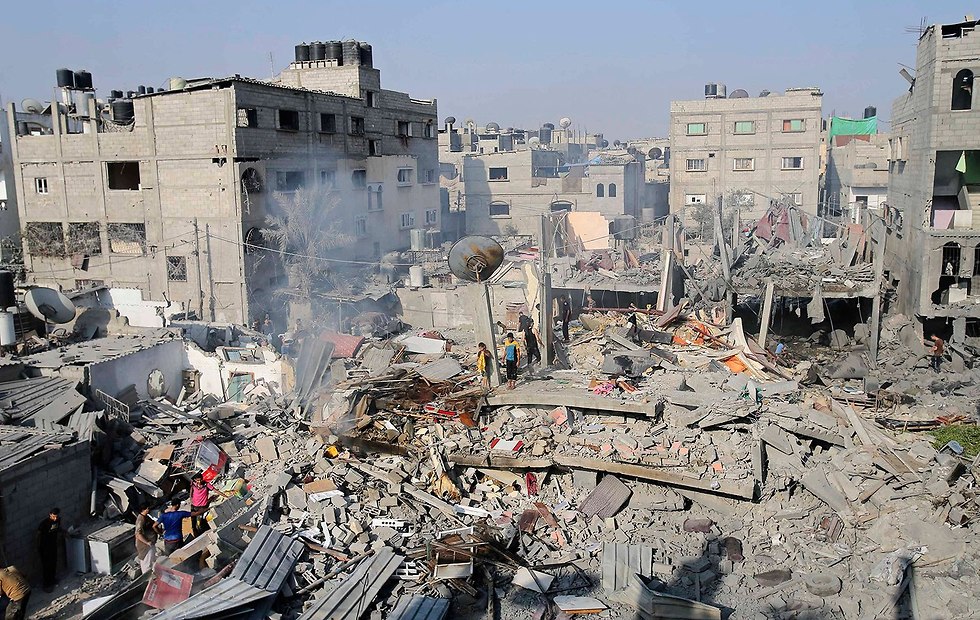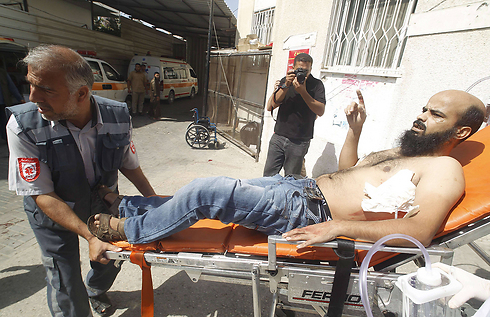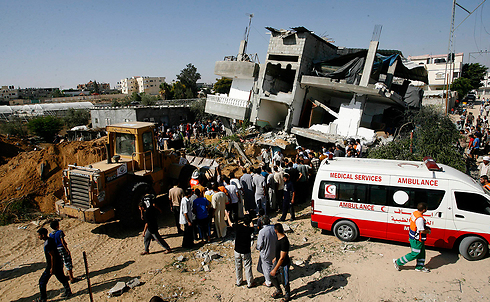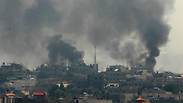
IDF to refrain from launching criminal probes in 'Rafah's Black Friday' case
Chief Military Advocate General finds no criminal wrongdoing in IDF forces' conduct in any of the fighting incidents during the 2014 Operation Protective Edge, even those in which non-combatants were killed; also, no investigation to be launched into massive IDF bombardment in Rafah the day Hadar Goldin was killed and abducted.
On August 1, 2014, Hamas took advantage of a ceasefire reached with Israel during Operation Protective Edge to ambush an IDF force, killing Lt. Hadar Goldin, Givati recon company commander Maj. Benaya Sarel and signal operator Staff Sgt. Liel Gidoni.
The Hamas force was able to grab Goldin's body and drag him with them into a tunnel. His body remains in Hamas hands to this day.
During the aggressive pursuit by Givati soldiers of Goldin's kidnappers, some 70 non-combatant Palestinians were killed and hundreds wounded by IDF fire.
The decision not to launch criminal investigations was made after the IDF collected and examined thousands of documents relating to that day, including aerial photos, intelligence data, testimonies from the IDF soldiers and officers involved, operations logs, Palestinian testimonies, reports from both international and Palestinian organizations, radio communication recordings, and reports from internal IDF investigations into the events of that day.
Maj. Gen. Afek did not find any criminal wrongdoings in the conduct of the forces operating in the southern Gaza city of Rafah in search of Goldin in the hours that followed his abduction.
According to three different inquiry teams led by brigadier generals, which examined the events of "Rafah's Black Friday" over the past four years and submitted their findings to the Chief Military Advocate General, 72 Palestinians were killed that day who were legally defined by the IDF as "uninvolved"—meaning, non combatants—including women and children. In addition, 42 terrorists were killed by IDF forces. There were 16 other Palestinians killed in the same area that day, but the IDF has been unable to determined where and how they were killed.
However, the examination also found professional errors and failures in IDF actions that day, and a list has been drawn up of lessons, some of which are already being implemented—including clarifications of the IDF's fire opening policy and the "Hannibal Directive."
The chief military advocate general also determined there was no justification to taking any steps against any of the officers who led the fighting in the Rafah area that day—such as reprimanding or not promoting them.
As part of the examination of the events of "Rafah's Black Friday," dozens of soldiers involved in the fighting that day provided their version of events to the General Staff's examination team. Most of them were officers who were leading the fighting and some were combat soldiers from the air and ground forces that took part in the intensive pursuit of the terror cell that abducted Goldin.
Among the officers who gave their version of events were then-Givati Brigade Commander Brig. Gen. Ofer Winter, who commanded the forces in the field from the front, and the commander of the Gaza Division at the time, Maj. Gen. Mickey Edelstein, who commanded the forces from the rear.
The Gaza Division was in charge of managing the Air Force's fire during the incident, which killed most of the non-combatant Palestinians. Ten of them were killed by canon fire and five by tank fire. None of the Palestinians who weren't terrorists were killed by small-arms fire, meaning by a combat soldier on the ground.
The chief military advocate general determined that every one of the hundreds of attacks carried out that day was legal. Afek explained this by noting the circumstances of the incident were unusual: This wasn't an isolated incident—that can be controlled and contained—in which an uninvolved Palestinian was killed, but rather a large-scale war event in hostile, dangerous, enemy-filled surroundings, with a clear and unusual mission—to locate a soldier captured, which throughout most of the day was believed to be alive.
The chief military advocate general examined a number of other unusual incidents from Protective Edge in which uninvolved Palestinians were killed. Here too he decided there was no indication of criminal wrongdoing by the forces, finding no instance in which a force opened fired at uninvolved Palestinians intentionally or because of criminal negligence.
Overall, Maj. Gen. Afek determined that there is no justification to filing criminal charges against any IDF combat soldier or officer who was involved in the fighting in any of the incidents throughout the 51 days of Operation Protective Edge, including incidents in which hundreds of uninvolved Palestinians were killed.
The same appears to be the case for two remaining open criminal investigations out of 31 that have been opened and have since been closed without charges being filed. These two investigations concern a Palestinian claim civilians being killed by IDF artillery fire in Jabalia, and another incident in which IDF soldiers allegedly used a Palestinian man—who was unharmed—as a human shield.
The only criminal incident during Protective Edge that resulted in imprisonment concerned Golani soldiers who looted a Palestinian home in Gaza City's Saja'iyya neighborhood, stealing thousands of shekels.
Some 50 additional unusual incidents are still being examined by the General Staff's inquiry mechanism. These examinations are said to be at very advanced stages, and the chief military advocate general is not expected to order a criminal investigation into any of them.
In total, the IDF examined some 500 complaints concerning some 360 incidents throughout Protective Edge. About 220 of them were examined by the General Staff's inquiry mechanism, which includes lawyers from the Military Advocate General's Office.
The IDF released Wednesday a 30-page summary in both Hebrew and English of its report on the investigations into "Rafah's Black Friday." It summarizes hundreds of detailed pages about each of the battles that took place that day in the Rafah area.
In addition, the Military Advocate General's Office examined the claims made in reports published since Protective Edge by different bodies, including the UN's Human Rights Council, B'Tselem, Amnesty International and the Palestinian Al Mezan Center for Human Rights. The findings of the examination of these claims were incorporated into the conclusions on each battle and incident.
The main reason it took the chief military advocate general to reach a decision on the case is the fact the IDF was having a hard time collecting testimonies from Palestinians or international elements who witnessed what happened that day.
For the same reason, the IDF has a hard time fully reconstructing the many different operational events of that day, which began at 9am and lasted into the late afternoon, when the forces collected enough findings inside the Hamas tunnel to allow the IDF to declare Goldin a fallen soldier whose place of burial is unknown.
The legality of each attack the IDF carried out in the Rafah area that day was examined separately by a team of lawyers from the Military Advocate General's Office. The team was able to obtain testimonies of Palestinians in indirect manners—through Palestinian aid organizations and Gazan lawyers representing the families of the dead. Their testimonies were collected in meetings at the Erez border crossings, phone calls, and email exchanges. In most of the cases, they provided the IDF with specific information about the death of a Palestinian, based on the coordinates of where it happened.











